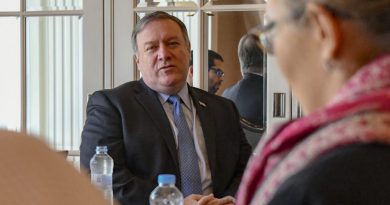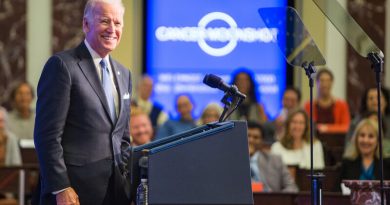Former Philippine President Duterte Arrested, Faces ICC Charges for Drug War Killing
William Coppola
Staff Writer
Rodrigo Duterte, the former President of the Philippines, was arrested last month after the International Criminal Court issued a warrant for his arrest. After his arrest, Duterte was extradited to The Hague, in the Netherlands, where he is currently in Dutch custody. Duterte traveled back to the Philippines after speaking to Filipinos living in Hong Kong, reports the Associated Press.
An official statement from the International Criminal Court charged Duterte with the crime against humanity of murder. They specifically point to the thousands of killings carried out from November 2016 to March 2019, the period when Duterte was Mayor of Davao and then the President. The court argued that it had jurisdiction over the crimes, as the Philippines was a signatory to the Rome Statute, the ICC’s founding treaty, during the period that the killings occurred. Duterte’s supporters argue that, because the Philippines is no longer a signatory to the Rome Statute, the court has no jurisdiction.
Sara Duterte, the current Vice President and Rodrigo Duterte’s daughter, has publicly denounced the arrest. She and her sister have both posted on social media calling for the release of their father. According to Al Jazeera, Sara has called the arrest “oppression” and “an affront to [Filipino] sovereignty.” Following his arrest, Sara Duterte traveled to The Hague to help her father in his case against the ICC. Both supporters and opponents of Duterte have gathered outside the prison, while a vigil of Duterte supporters was also held in the Philippines.
Duterte first ran for president in 2016 on a strict anti-drug platform. According to The Washington Post, Duterte compared himself to Hitler and expressed support for the mass murder of drug addicts throughout his campaign. He promised the country that drugs and drug users would be eliminated within 30 days. Under his command, both the Filipino police and “death squads” killed thousands of Filipinos. The official tally is over 6,000, but human rights groups have estimated closer to 20,000 or 30,000 deaths. His war on drugs began in the early 2000s when he was the mayor of Davao. Under Duterte, the so-called Davao Death Squads extrajudicially killed thousands of criminals and drug addicts. His time as mayor earned Duterte a reputation as a staunch and often brutal opponent of crime and drugs in particular. After his
arrest, Duterte posted a video taking full responsibility for his actions but maintaining his innocence.
Supporters of the former president have also pointed to Duterte’s age and health condition in protesting the arrest. Duterte, who recently celebrated his 80th birthday in prison, is reported by Reuters to have a chronic neuromuscular disorder and other various health issues. However, the presiding judge overseeing his case has deemed him fit to stand trial.
The recent arrest is part of a broader rivalry between the two most politically prominent families in the Philippines. President Ferdinand “Bongbong” Marcos Jr. had formerly supported Duterte, choosing his daughter to be his running mate. However, in recent months, the two have fallen out, with Vice President Sara Duterte being impeached for a litany of crimes, including plotting the assassination of President Marcos. President Marcos stated that he cooperated with the ICC and turned over Duterte, even though the Philippines is no longer a member nation of the court, according to Al Jazeera.
Supporters of the ICC are celebrating the arrest as proof of its relevance in the modern world. Duterte’s arrest makes him the first Asian head of state to be indicted by the ICC and the first person to be arrested by the court in over three years. According to BBC News, many have doubted the court’s ability to hold powerful offenders accountable, as several prominent fugitives remain at large and are in power. President Vladimir Putin of Russia and President Benjamin Netanyahu both have arrest warrants against them from the International Criminal Court, but have faced no threats while traveling to ICC member nations.
Image courtesy of Getty Images.


